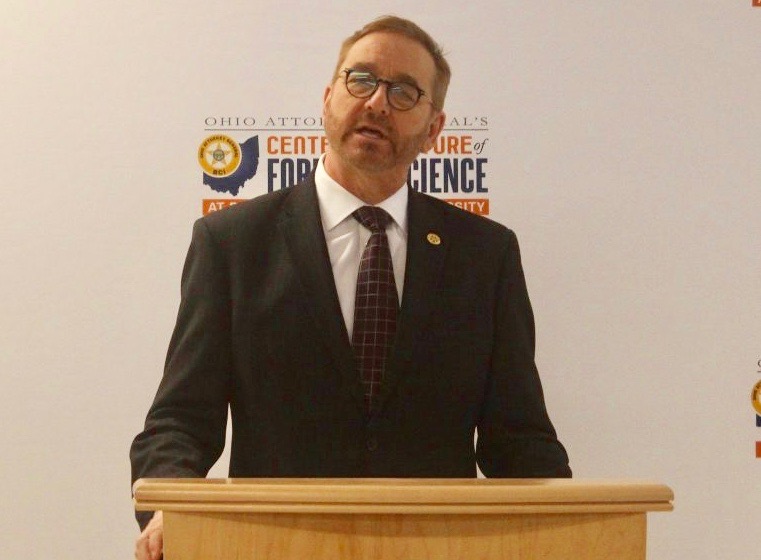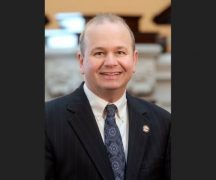BY SUSAN TEBBEN
Ohio Attorney General Dave Yost joined 23 other state attorneys general in a court filing asking the U.S. Supreme Court to return “the question of abortion” back to the states, and overturn Roe v. Wade.
The court brief comes as the nation’s highest court considers a challenge to Mississippi’s law banning abortion at 15-weeks. The attorneys general said the court challenge “presents the court with an opportunity to remedy those problems by considering and overruling their source — Roe v. Wade” and another case in Pennsylvania involving Planned Parenthood that upheld the constitutional right to abortion.
“Abortion is a ‘right’ in search of a constitutional home,” the AGs said in the court brief.
In Ohio, abortion is legal up to 20 weeks gestation, despite varying attempts to shorten the limit and regulate different elements of abortion.
Yost said in a statement about the court brief that the legal fight over abortion “has become like the 1960s fights over pornography — no one can say exactly what’s allowed and what’s not.”
State Sen. Tina Maharath, D-Canal Winchester, jumped in after the brief was released, expressing her disappointment in Yost and the challenge to Roe v. Wade, saying Yost was “signaling his disregard for the rights of women in Ohio and throughout our country.”
“This would not put an end to abortions in Ohio,” Maharath wrote in a Friday statement. “Those with the means to do so will leave our state for their health care needs, and others may turn to more dangerous methods for inducing abortion.”
Abortion advocates NARAL Pro-Choice Ohio said Yost was abusing his position by joining in the court brief.
“It’s not Dave Yost’s place to decide for someone else whether they should be able to get an abortion,” NARAL executive director Kellie Copeland said in a statement. “If the U.S. Supreme Court listens to Yost and allows states to ban abortion, the harm will fall hardest on people who are already marginalized by our health care system, including women of color, young people and transgender and non-binary people.

Copeland also said public opinion in Ohio is not on the side of anti-abortion supporters.
A Pew Research study on public opinion of abortion showed fluctuating support for legal abortion in all cases, but shows a majority of adults in support of abortion legality in “all or most cases in most recent polling.
According to the study, 59% of the American adults say abortion should be legal, whereas 39% say it should be illegal in all or most cases.
A state breakdown made by Pew in 2020 showed Ohio with a slimmer margin of support for abortion legality, but still showed 48% of Ohioans approved of abortion in most cases, versus 47% against abortion legality in most cases.
***
Also from Ohio Capital Journal:
Ohio lawmaker seeks to protect voter education programs with new bill
A Cleveland lawmaker is hoping to protect voter outreach programs that may be in danger of being outlawed in future Ohio elections.
The state budget approved earlier this summer includes a number of provisions that voting rights advocates have characterized as anti-democratic. Among them is a prohibition on election officials collaborating with any nongovernmental entity to promote voter registration or any other voting education program.
Election officials will also be barred from receiving any donation from outside the government to use for election-related purposes, such as buying equipment or conducting training.
Secretary of State Frank LaRose doesn’t believe the budget item threatens his outreach programs such as “Styling for Democracy,” which featured voter registration forms placed in Ohio barber shops.
But advocates say a plain reading of the provision would implicate such programs and dampen government efforts to register and educate new voters. READ MORE
Democrats take aim at legalized marijuana
Two Democrats plan to bring up the legalization of recreational marijuana, while also trying to cancel out past criminal convictions related to marijuana.
State Reps. Casey Weinstein, D-Hudson, and Terrence Upchurch, D-Cleveland, introduced a new bill to decriminalize marijuana, along with creating a marijuana excise tax, commerce and licensing in the industry and appropriations for research on medical marijuana.
“This bill is much needed in Ohio, and it’s time for Ohio to become a national leader in marijuana decriminalization and legalization,” said Upchurch in a statement on Friday.
If passed as written, the excise tax included in the bill would be 10% on the sales of marijuana by retailers and microbusinesses, and it would be distributed to K-12 education and infrastructure maintenance. – Susan Tebben





